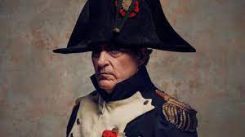Contents
Imagine that even his hat can still be sold for 2 Million Euros… Such a historical character and leader… He is at the same time a controversial historical character that the French cannot stop praising and the British constantly criticize. Napoleon Bonaparte, who has recently come to the fore again with the film made in his name, is one of the most sensational leaders in history. Moreover, he is a leader who even historians have not yet reached a consensus. This historical personality was also involved in many major historical events that affected the flow of history.
He became the main hero of major wars and events such as the dissolution of the Parliament in the Republic established after the French Revolution, the transition to Monarchy, the Napoleonic Wars, the Revolutionary Wars, the Battle of Waterloo, the Battle of Austerlitz and the French-Russian War of 1812.
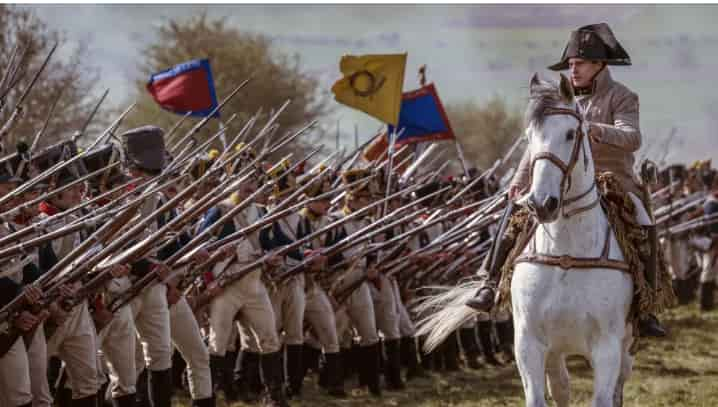
The Early Years: From Corsica to Military Ambition
On the other hand, since he was short, one of the questions about him in searches is “How tall was Napoleon?”
Although it is unlikely to be asked in any job interview at this point, we still believe that it will be beneficial to know basic information about Bonaparte in order to improve personal development, career management and intellectual accumulation.
For example, it is an interesting issue that Napoleon, who defeated Austria in 1805 and the Russian Emperor Tsar Nicholas, quickly retreated after occupying Moscow in 1812. Unlike historians, L. Tolstoy looks at this issue from a different perspective in his work War and Peace. We recommend you to read that book in order to understand that subject fully. Additionally, after his defeat in the Battle of Waterloo, the days he spent on the island of Saint Helena and the manner of his death are also very controversial.
How The Emperor Died!

So, according to some the cause of death of the French Emperor was poison. And for some other it was stomach cancer. How did he think and carry out the reforms that laid the foundations of the legal and educational systems of Europe and the modern world even today? History has not yet given its verdict on these and similar issues. We will leave the final decision to you, based on the available data, from an objective perspective whenever possible. 🙂 Of course, we will try to touch on different points from the classic and similar life stories or biographies on the internet. You will not read a classic memorized biography in here, rest assured…
Napoleon’s Rise to Power: French Revolution and Beyond
Napoleon, who was born on the island of Corsica in 1769, during the French conquest, was the child of a family that was neither extremely rich nor very poor. Although his family was considered a “noble” family by the administration, thanks to his good relations with the French, his family’s situation was actually middle-class. As a member of a family that has very good relations with the French, you will appreciate that it was not difficult for him to enter the French Military School. 🙂 In this context, he successfully graduated from the military school he entered at the age of 14.
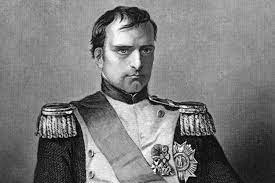
Graduating as an artillery officer in 1785, the French Leader was later appointed to the rank of lieutenant thanks to his outstanding achievements. He is actually a leader born from the French Revolution and its consequences. In other words when the revolution took place, the countries governed by monarchies and kingdoms, especially England, were worried that the republican atmosphere that came with the 1789 French Revolution would affect their own countries.
At this point, it should be noted that, after these fears, the long-term wars we call the French Revolutionary Wars began. As the hero of these wars, Napoleon became a great leader in the eyes of the French people and even became an “emperor“. Going back to the topic, in 1793, in the 4th year of the revolution, while the revolutionary wars were continuing, he was accelerating his steps on the road to empire by being promoted to brigadier general after saving the port city of Toulon which was attacked by England.
The Emperor Bonaparte!
Then, in October 1795, royal supporters revolted, against Revolutionary government. Napoleon, who was given the task of defending Paris, made a different decision at the most critical moment, suppressed the rebellion by placing cannons in the buildings and firing cannons at the rebels. Thanks to his clever defence, he was promoted to the rank of major general. His name was spreading rapidly. The solution he found was very radical but effective. He saved the revolution. 🙂
Napoleon, who took part in the French Revolutionary Wars and gained success on many fronts, especially in Italy, staged a coup against the republic government in 1799 and became one of the three consuls. And finally, in 1804, he declared himself emperor, ending the revolutionary republic and going down in history as Napoleon I.
The Napoleonic Code: A Legacy of Reform and Law
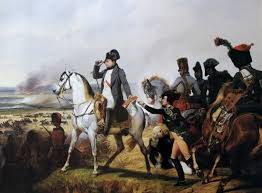
With declaring himself emperor, the revolutionary wars turned into the Napoleonic Wars. With the republic returning to monarchy, the coalition forces, especially England, who were disturbed by Bonaparte’s expansionist policies, united against him. This series of wars last resulted in the Battle of Waterloo in 1815, and he was definitively defeated. Approximately 4 million people died as a result of the wars. Considering the world and European population of that period, this number is truly a scary number.
At the beginning of the Wars, things progressed quite well on the “emperor Napoleon” side, including Austerlitz in 1805, until the invasion of Moscow during the Russian campaign in 1812, but then a rapid collapse began.
In 1812, after the winter conditions forced the Russian army to wear down the French under the leadership of Kutuzov, a long retreat from Moscow to Paris began. This is the beginning of the end for him, who lost half of his army during this time. Although the coalition forces that entered Paris in 1814 exiled him, Napoleon, who escaped from exile, gathered power until his final defeat in the Battle of Waterloo in 1815. Finally, in June 1815, Emperor Bonaparte, who lost the Battle of Waterloo against the Prussian and British armies in today’s Belgium, was sent to exile island of Helena Saint He spent the last period of his life there.
The Fall of Napoleon: From Exile to Legend
N.Bonaparte, who was exiled in 1815, continued his life on this small island until May 1821. Although he tried to escape again, he was unsuccessful. According to some, it was claimed that he was poisoned by the kings who were afraid of the possibility of escaping from exile again. According to official history, the exact cause of death of this great leader, who allegedly died of stomach cancer at the age of 51, is unknown.
In this context, it’s strange that he was cremated after his death, isn’t it? If he had not been burned, perhaps even with today’s technology it could be determined whether he was poisoned or not.
His Views and Revolutionary Laws
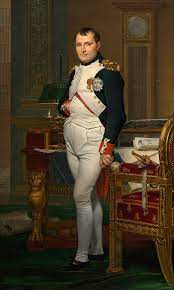
His views and the reforms he carried out make a significant part of the French people grateful to him even today. Important reforms such as the modernization of military units, the renewal of the education system and legal structure according to modern needs show how far-sighted Napoleon was, considering the conditions of that period.
These laws, known as the Napoleonic laws, were very effective in the spread of the dominance of the French state in Europe in a short time and in France becoming an important power. Although the British claim that he was a dictator because he abolished parliament and democracy and declared himself emperor, the French claim that he was an important soldier and reformist.
Was He Really Short?
Yes, the answer to this very popular question is “yes, he was short.” According to historical information, Napoleon Bonaparte’s height is 168 cm.
Is it a strange coincidence that many of the important characters in history are around 170 cm tall? Let’s leave the interpretation to you 🙂
Coming to the question we asked at the beginning, whether he was a passionate reformist or a short dictator, we leave it to you in the light of the information we have provided. If you wish, you can write your opinions in the comments. By the way, you can see 2023 movie’s IMDB page from Napoleon!
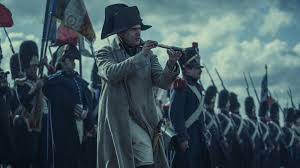
Most Important Quotes of Bonaparte
There are many important words said or attributed to leaders who left their mark on history, such as N.Bonaparte. Some of the most important known words of Napoleon Bonaparte are as follows:
- Napoleon did not say “money, money, money” out of the blue. Based on the question asked to him, he said three things are necessary to win the war; “money, money, money,” he said. Otherwise, he is not a stingy or money-hungry person who only sleeps and talks about money.
- It is easy to give an order, but the important thing is to ensure that that order is fulfilled.
- Dying is not a matter of courage, what really requires courage is to endure suffering.
- Everything that fits the mind can be achieved.
- Despair is the greatest crime.
- Facts are the only thing that hurts people.
- One of the truest qualities of a leader is that he gives hope.
- Politics and ideas will always defeat the sword and brute force.
